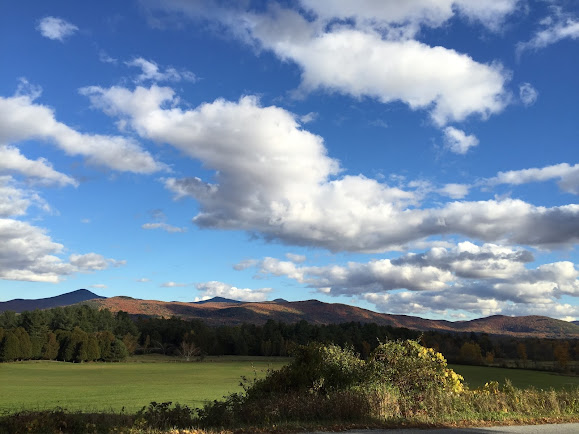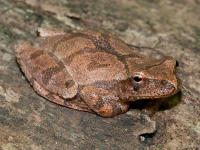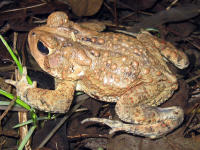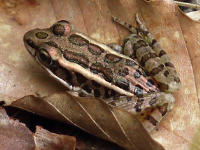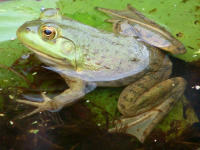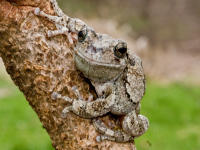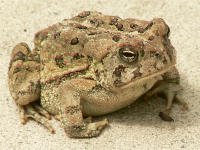The water has risen one and a half inches at six this morning since last
night. It is now, then, eight and a half inches above the iron truss, i.
e. the horizontal part of it. There is absolutely no passing, in carriages
or otherwise, over Hubbard's and the Red Bridge roads, and over none of the bridges for foot- travellers. Throughout this part of the
country most people do not remember so great a flood, but, judging from some
accounts, it was probably as high here thirty-five years ago.
The willow catkins have made but little progress for a week. They have suffered from the cold rain and wind, and are partly blasted.
It is a pleasant sight, among the pleasantest, at this season, to see the at first reddish anthers of the sterile catkins of our earliest willow bursting forth on their upper sides like rays of sunshine from amidst the downy fog, turning a more and more lively yellow as the pollen appears, – like a flash of sulphur. It is like the sun bursting out of a downy cloud or mists.
I hear this morning, in the pine woods above the railroad bridge, for the first time, that delicious cool-sounding wetter-wetter-wetter-wetter-wet’ from that small bird (pine warbler ?) in the tops of the pines. I associate it with the cool, moist, evergreen spring woods.
The wood pewee [?} on an elm sings now peer-r-weet peer-r-weet, peer-wee’. It is not the simple peer-r-wet peer-r-wee' that I heard at first. Will it not change next to that more tender strain?
Vegetation starts when the earth's axis is sufficiently inclined; i. e. it follows the sun. Insects and all the smaller animals (as well as many larger) follow vegetation. The fishes, the small fry, start probably for this reason; worms come out of the trees; buffaloes finally seek new pastures; water-bugs appear on the water, etc., etc. Next, the large fish and fish hawks, etc., follow the small fry; flycatchers follow the insects and worms. (The granivorous birds, who can depend on the supplies of dry seeds of last year, are to some extent independent of the seasons, and can remain through the winter or come early in the spring, and they furnish food for a few birds of prey at that season.) Indians follow the buffaloes; trout, suckers, etc., follow the water-bugs, etc.; reptiles follow vegetation, insects, and worms; birds of prey, the fly- catchers, etc. Man follows all, and all follow the sun.
The greater or less abundance of food determines migrations. If the buds are deceived and suffer from frost, then are the birds. The great necessary of life for the brute creation is food; next, perhaps, shelter, i.e. a suitable climate; thirdly, perhaps, security from foes.
The
storm may be said to have fairly ended last night. I observed yesterday that it
was drier in most fields, pastures, and even meadows that were not reached by
the flood, immediately after this remarkable fall of water than at the
beginning. The condition of the fields has been steadily improving for walkers.
I think one reason is that there was some frost in the ground which the rain
melted, so that the ground soaked up the water. But no doubt it goes to prove
dryness of our sandy soil and absence of springs.
At 6 P. M. the water has fallen an inch and a half.
Heard the pigeon woodpecker today, that long-continued unmusical note, somewhat like a robin's, heard afar, yet pleasant to hear because associated with a more advanced stage of the season.
Saw the Fringilla hyemalis to-day, lingering still.
H. D. Thoreau, Journal, April 23, 1852
The at first reddish anthers of the sterile catkins of our earliest willow bursting forth on their upper sides like rays of sunshine See April 12, 1852 ("Saw the first blossoms (bright-yellow stamens or pistils) on the willow catkins to-day . . . The yellow blossom appears first on one side of the ament and is the most of bright and sunny color the spring has shown, the most decidedly flower-like that I have seen. . . It is fit that this almost earliest spring flower should be yellow, the color of the sun."); April 16, 1852 ("That large early swamp (?) willow catkin (the sterile blossom) opens on one side like a tinge of golden sunlight, the yellow anthers bursting through the down that invests the scales.") See also A Book of the Seasons, by Henry Thoreau, Signs of the Spring: Alder and Willow Catkins Expanding
Will it not change next to that more tender strain? See note to April 14, 1852 ("I do not hear those peculiar tender die-away notes from the pewee yet. Is it another pewee, or a later note?")
April 23. See A Book of the Seasons, by Henry Thoreau, April 23


